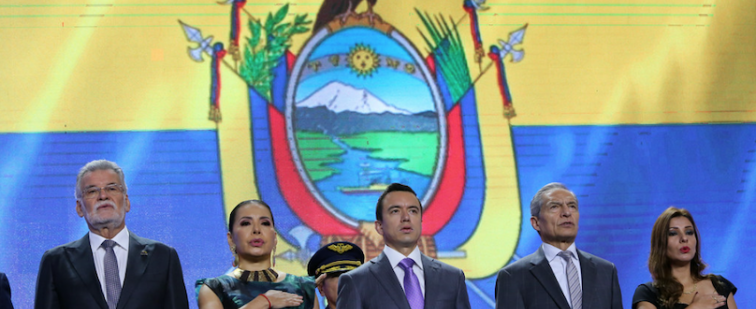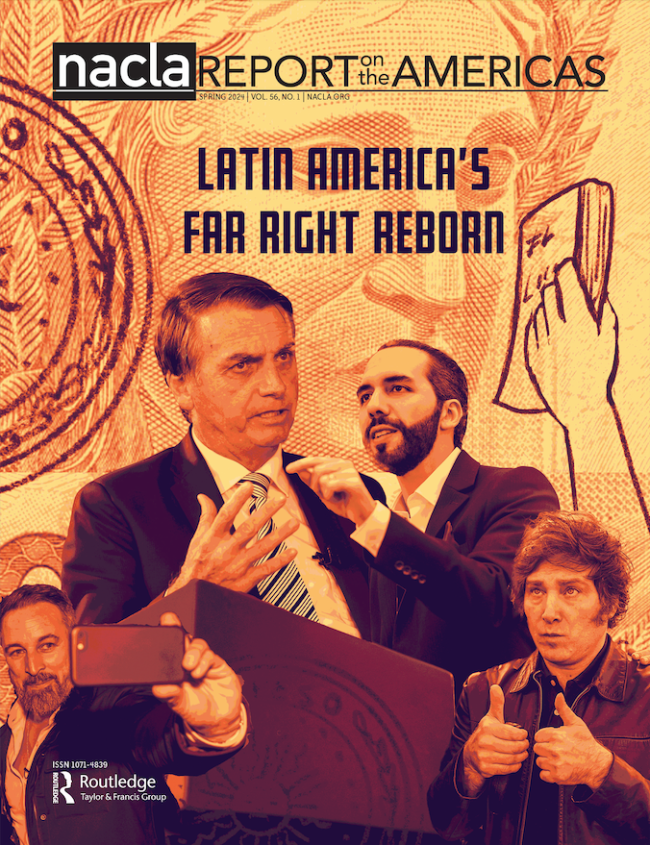Home
Upon the death of brutal dictator Augusto Pinochet, Uruguayan author Eduardo Galeano summed up the feeling of many Chileans in concluding, “Death ultimately beat justice.” In a cosmic twist of irony, Pinochet died on International Human Rights Day—December 10—while eluding punishment for his crimes.
Latin America points the way for progressive politics, and the NACLA Report is on the story. When the Democratic Party wrestled a slim majority in Congress in the 2006 midterm elections, the punditry was quick to pronounce it a "revolution." But while lefties may have raised a hopeful fist on election night, nobody could legitimately claim that the shift in power stemmed from an energetic, organized, dedicated grassroots movement. Latin America is a different story.
Hugo Chávez's resounding victory in well-monitored elections earlier this month shows that the self-styled socialist's controversial leadership and big social spending have genuinely won over Venezuela's poor majority. But Chávez has raised eyebrows by dedicating his victory to the Cuban revolution and declaring the beginning of a “new society.” Is this declaration, as many critics are suggesting, code for the launch of a full-fledged communist state, Cuban-style?
Three icons of U.S.-Latin American foreign policy died this month. Milton Friedman, Jeane Kirkpatrick, and Augusto Pinochet may not have met in the same room, but together they helped construct the architecture of hemispheric relations that has endured well into the current Bush government.
In Santiago on September 11, 1973, I watched as Chilean air force jets flew overhead. Moments later I heard explosions and saw fireballs of smoke fill the sky as the presidential palace went up in flames. Salvador Allende, the elected Socialist president of Chile died in the palace.
Silvestre Saisari, a bearded, soft-spoken leader in the Bolivian Landless Workers’ Movement (MST), sat in his office in Santa Cruz, Bolivia. The building was surrounded by a high cement wall topped with barbed wire.
The Sabana Grande in eastern Caracas is one of the city’s most famous streets, and it has seen many changes in its short life. Until the 1940s, most of it still lay under sugarcane fields. But by its 1970s heyday the shopping boulevard was the scene of a flourishing café culture that for many Caracas intellectuals of a certain generation has passed into legend, a relic of a safer, wealthier, more cosmopolitan city.
The government of Evo Morales and the indigenous social movements of Bolivia have won an historic victory with the passage of an agrarian reform law that calls for the “expropriation of lands” that “do not serve a just social-economic function.”
When Honduran President Manuel Zelaya visited Washington this past June, he had two security-related requests for President Bush. The first was to convert the Colonel Enrique Soto Cano airbase (also commonly known as Palmerola) into a commercial air cargo terminal, while the second was to deploy U.S. Special Forces along the Mosquitia region in eastern Honduras to help combat drug-trafficking along the Caribbean coast.
“C’mon, muchachos, let’s go!” With this abrupt order, Celia Eumesa and a group of the Nasa Indigenous Guard under her command jumped into a van and drove off in hot pursuit of a handful of guerrillas that had just kidnapped some people from her community. Armed with no more than decorative staffs, which they carry to symbolize indigenous authority, they sped behind the guerrillas’ car with a caravan of 60 other Indigenous Guards trailing behind.










